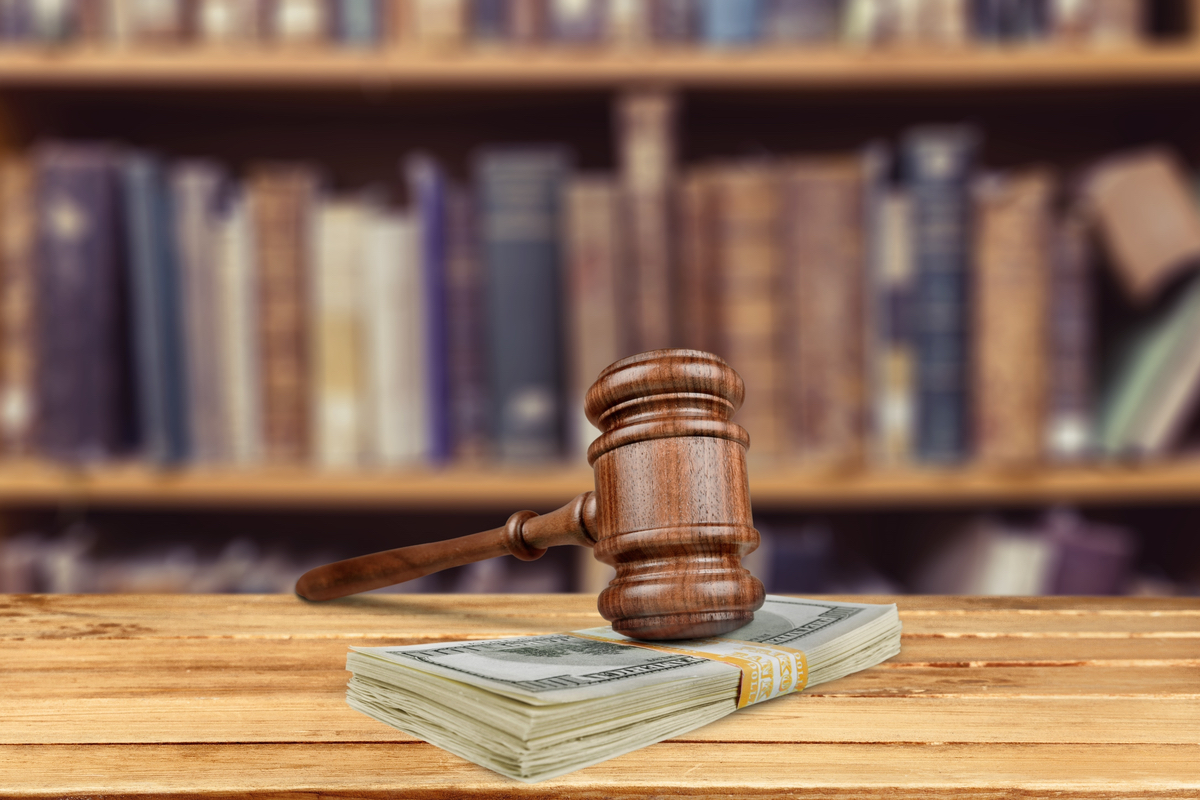
In Louisiana, a boat passenger died in a boating accident caused by a loss of hydraulic fluid from the boat’s steering system. The passenger’s father sued the steering system manufacturer for compensatory and punitive damages. Was the father successful in his lawsuit to obtain compensatory and punitive damages from the manufacturer?
It’s helpful to know what punitive damages are and if Louisiana allows punitive damages in personal injury cases to understand the outcome of this particular lawsuit.
What are Punitive Damages?
There are two types of damages the father was trying to obtain. The first type of damage was compensatory, and the other was punitive. It’s important to know the difference, especially when seeking compensation for injuries in Louisiana.
Compensatory Damages
If an injury or death occurred because of someone else’s negligence or unlawful behavior, the wronged parties have a right to be compensated for any losses, injuries, or damages. Examples of compensatory damages that an injured person could recover are:
- Medical and hospital bills
- Medical treatments
- Medical equipment
- Medicine and prescription drugs
- Physical therapy
- Rehabilitation
- Lost wages or a loss of employment income
- Property damage replacement or repair
- Transportation
- Increased living expenses
In the case of the father suing the boat steering system manufacturer under Louisiana’s products liability law CC 3545, he proved that the manufacturer was negligent in the death of his son. He also demonstrated that the manufacturer knew about the hydraulic system leak and failed to warn customers. As a result, the jury awarded him $125,000 in compensatory damages.
Punitive Damages
In some states, if a jury finds that a plaintiff should receive a compensatory award because negligence is proven, then they also have to determine whether the negligence from the defendant was so egregious that the plaintiff should also receive punitive damages. Punitive damages, on top of compensatory awards, are meted out as a punishment to deter the defendant from continuing the negligent behavior.
Caps on punitive damages can be as high as four times the amount of compensatory damages. However, if the defendant’s negligence was so harmful or if the harm suffered by the plaintiff is greater than the punitive damages they asked for, awards can be much greater than four times the compensatory damages. Other factors that juries can consider when calculating punitive damages are:
- When damages that aren’t related to money are hard to calculate
- If injuries that may happen or are difficult to detect have not presented themselves yet
- If injuries are going to need continuous care
- If the defendant’s behavior was highly reprehensible
In the father vs. the manufacturer hearing, the father was awarded $23 million in punitive damages.
The standards for punitive damages and the caps on the amount of punitive damages that a jury can award vary from state to state. Some states allow punitive damages in every personal injury scenario, while others have very stringent laws on when the judicial system can award punitive damages.
Does Louisiana Allow Punitive Damages for Personal Injury Cases?
Louisiana allows punitive damages but under stringent circumstances regarding personal injury incidents. Louisiana’s civil code 2315.4 says that punitive damages for personal injury cases can only be awarded if a drunk driver caused the injuries or, according to CC 2315.8, if a domestic abuse incident caused the injuries.
Punitive damages for any other reason in a personal injury case will not be allowed to be awarded, according to CC 3546, unless the injuries occurred or the actions were conducted to cause the injuries in another state that allows punitive damage awards. Also, punitive damage awards will be considered if the defendant who caused the injury lives or domiciles in another state that allows punitive damages.
This Louisiana civil code was tested in Tajonera v. Black Elk Energy Offshore Operations, LLC, when the plaintiffs claimed that they should receive punitive damages for injuries caused by an explosion on an oil platform located 17 miles off the shore of Louisiana. Black Elk Energy Offshore Operations headquarters is located in Houston, TX.
So how did the father get awarded $23 million in punitive damages in Louisiana when the state has such strict punitive damage laws for personal injury cases? Because the father asked for punitive damages under maritime law rather than the state of Louisiana.
Determining Eligibility for Punitive Damage Awards
Factors in determining punitive damages are the degree of negligence in which the defendant acted, including:
- Was the outcome physical harm and not economic?
- Did the negligence show indifference, reckless disregard for the health and safety of the public, maliciousness, or deceit?
- Was the personal injury event a result of repeated actions or an isolated event or accident?
- Was the target of the negligence financially disadvantaged?
In the father’s case, the death of his son was physical harm that cannot be economically calculated. In addition, the boat steering system manufacturer didn’t tell the public about the hydraulic leaks and what could happen as a result showing reckless disregard for the public’s safety. However, it was not found that the manufacturer showed maliciousness or deceit, and they weren’t intentionally preying on financially disadvantaged people.
The next factor that judicial systems must determine for punitive damage eligibility is the ratio of the harm or potential harm done to the plaintiff and the compensatory damages awarded.
The defendants appealed the father’s trial judgment of $125,000 in compensatory damages and $23 million in punitive damages on these eligibility criteria. The ratio of punitive damages to compensatory damages of 184 to 1 was deemed too much by the Louisiana Supreme Court, setting the award at $4,250,000.
It’s Difficult But Not Impossible to be Awarded Punitive Damages in Louisiana

If you are injured in an accident or a premise liability event, you can receive compensatory damages for everything you need to recover from your injuries. However, note that punitive damages in personal injury cases are very difficult to be awarded in Louisiana unless particular circumstances surround the incident.
In cases involving catastrophic injuries, understanding your legal rights becomes paramount. Similarly, comprehending the nuances of damages in wrongful death cases or exploring the broader spectrum of legal topics can be beneficial. It’s also worth considering alternative dispute resolutions before heading to court. For instance, injuries like car crash neck injuries might have specific legal intricacies that require expert guidance.
Consulting a lawyer about the circumstances of your injuries will determine whether you can be awarded punitive damages in Louisiana. Contact Alvendia Kelly & Demarest today at 504-200-0000 to schedule a free consultation.
Categories
- Bicycle Accidents
- Car Accident
- Case results
- Class Action
- Community Aid
- COVID-19
- Fun
- General
- Hard Rock Lawsuits
- Holiday
- Insurance Claims
- Legal Advice
- Mardi Gras Accident Attorney
- Mass Tort
- Medical
- Motorcycle Accident
- Personal Injury
- Practices
- Premise Liability
- Recent News
- Safety
- Truck Accidents
- Uncategorized
- Weather
- Work-Related Accident

In 2003, after being dissatisfied with the quality of legal care for victims of car accidents, Roderick ‘Rico’ Alvendia sought to establish a new firm focused on providing high-quality legal services to aid injured victims and their families. J. Bart Kelly, sharing Rico’s passion for upholding justice, joined the firm later that year, and established a partnership.






